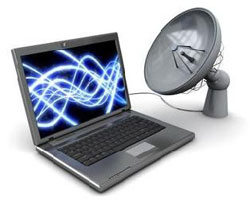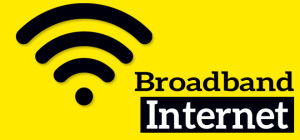 Nowadays, if you want to get access to the World Wide Web, you have many options to choose from, each, obviously, with its advantages, drawbacks and different potential applications. Let us compare two of the most popular connectivity systems: DSL and satellite.
Nowadays, if you want to get access to the World Wide Web, you have many options to choose from, each, obviously, with its advantages, drawbacks and different potential applications. Let us compare two of the most popular connectivity systems: DSL and satellite.
DSL: the Basics
You have surely heard of DSL connections, but what exactly are they? DSL comes from "Digital Subscriber Line" and it is a form of broadband connection. This means that it is significantly faster than traditional cable-based Internet connections.
The main advantage of this technology is that it enables using the same cable infrastructure for telephony and Internet. Furthermore, the two types of services can be used in parallel: you can make or receive calls while staying connected to the Net, so, you basically do not need too much wiring in your home or office.
While it may resemble the old dial-up technology, DSL is much, much faster. All you need in order to connect to the Internet is a special DSL modem.
Satellite Internet: What Is It?
For this type of connection, you do not need any cable. You need a satellite antenna (you may be already using one, for receiving TV transmissions) and, obviously, a modem, plus some special software.
Data is received via electromagnetic waves, from satellites up in the orbit, and it goes back the same way. The most impressive feature of this technology is that you can basically get Internet access in the middle of the jungle, if you want it. These systems are not difficult to install, maintain and operate.
Satellite Internet has one more quality: it is surprisingly fast. If all goes well and there are no serious weather issues, you can upload and download big files, watch movies or run various online applications at a high and relatively constant speed.
Comparison
Yes, even with satellite Internet connectivity, there are some problems, namely higher costs, data transfer latency and some weather-caused issues. But, the latter technology brings numerous advantages over other networking means, including DSL:
- First of all, you do not need infrastructure. A satellite connection gives you access to the Web no matter where you are. This is especially helpful in areas poorly linked to the outside world, due to geographical and technological reasons. DSL depends on telephone lines: if you do not have them, you cannot get Internet access.
- Data transfer speed is constant in space. In DSL networking, you get high-speed Internet close to the provider's main location and slower as you go farther away. If you live in a rural area, you may have the unpleasant surprise of a sluggish connection. With satellite networking, you get the same speed no matter where you are.
- Transfer speed is also constant in time, with no significant fluctuations, as long as the sky is clear. This means that you are less likely to experience bothering upload or download times.
- With satellite Internet, you get a significantly higher bandwidth. Actually, from this point of view, this technology offers the best performance. Thus, many individual users can share an Internet connection at the same time, with no significant traffic speed loss. For DSL connections, the upper limit is somewhere around 5 users, after which problems start.
- When getting a satellite connection, you are not required to subscribe to other auxiliary services (phone or cable television).
- As a consequence, costs drop. Even if the Internet connection, by itself, is more expensive than a DSL one, when considering auxiliary subscriptions, it becomes more affordable.
- While satellite transmission can be affected by bad weather, do not think that DSL networks are not sensitive! Any issue that occurs along the cable line, or maybe just some poor-quality cabling, can slow down the connection or completely end it.
For more satellite and cable comparison please visit networkreviews.net.
Written for LeraBlog by Robert Kleymore, Internet technology expert, MIT graduate and a passionate blogger.






![The Basic Concepts behind The Internet [Infographic]](https://lerablog.org/wp-content/plugins/wp-thumbie/timthumb.php?src=http://lerablog.org/wp-content/uploads/2014/03/the-internet.jpg&w=300&h=140&zc=1)
